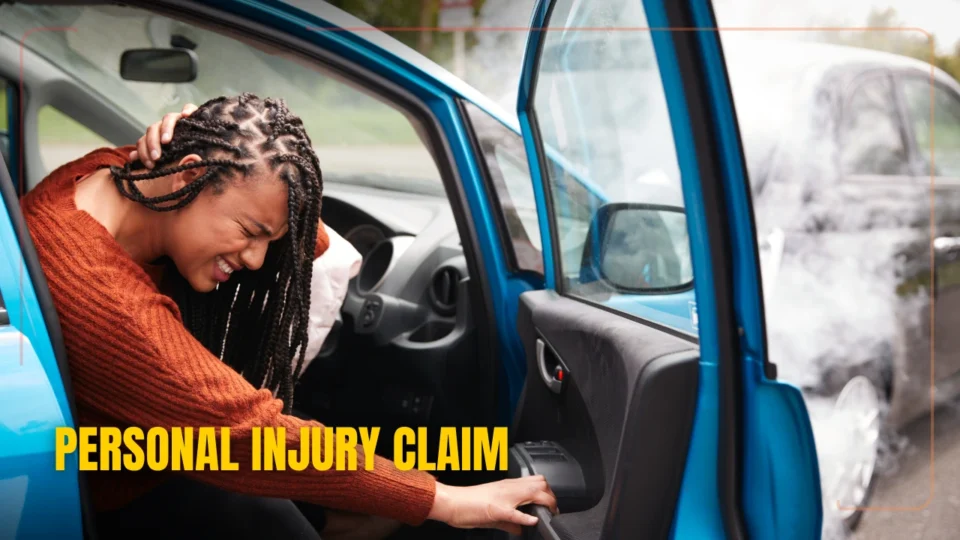Every year in the UK, thousands of people are left injured after road collisions. From whiplash and broken bones to life-changing trauma, the aftermath is often more than just physical. Many find themselves wondering: can I make a personal injury claim after a car accident?
The short answer is yes, in many cases you can. But the process is rarely straightforward. Securing fair compensation often requires understanding your rights, navigating legal rules, and finding the best lawyers to help with a personal injury claim after a car accident.
What the Law Says About Car Accident Claims
In the UK, the law allows people who suffer injury due to someone else’s negligence to seek compensation. For road traffic accidents, negligence usually means another driver failing in their duty of care, by speeding, running a red light, driving under the influence, or simply not paying attention.
Compensation aims to cover two broad areas:
- General damages: for pain, suffering, and loss of amenity.
- Special damages: for financial losses such as lost earnings, medical expenses, travel costs, and future care needs.
Solicitors specialising in road traffic claims point out that each case is judged on its individual merits. Evidence is critical, and timelines are strict.
Who Is Eligible to Claim?
Not every accident leads to a valid claim. Legal experts outline several key eligibility points:
- You must have been injured in the accident.
- The accident must have been at least partly the fault of another party.
- The claim usually has to be made within three years of the incident.
There are exceptions. Children injured in accidents, for example, have until three years after their 18th birthday to begin proceedings. Cases involving people who lack mental capacity also follow different rules.
Common Injuries After Road Collisions
The types of injuries most frequently seen in claims include:
- Whiplash and soft tissue injuries: common in rear-end collisions.
- Fractures and broken bones: ranging from minor wrist fractures to serious leg or hip breaks.
- Head and brain injuries: sometimes mild, sometimes catastrophic.
- Psychological trauma: including post-traumatic stress disorder.
While some injuries heal quickly, others bring long-term consequences. Solicitors note that even seemingly minor injuries can justify a claim if they affect work, mobility, or daily life.
The Evidence That Strengthens a Case
Lawyers consistently stress that strong evidence makes a strong claim. Useful documentation includes:
- Police reports and incident reference numbers.
- Medical records, including hospital discharge notes and GP visits.
- Photographs of the accident scene, vehicle damage, and visible injuries.
- Witness statements.
- Records of financial impact, such as payslips, receipts, and invoices.
Claimants are advised to gather as much information as possible at the scene and in the weeks following. Memories fade, but documents remain persuasive.
The Claims Process: Step by Step
Although no two cases are identical, most claims follow a similar pattern:
- Initial consultation with a personal injury solicitor.
- Case review to confirm eligibility and gather evidence.
- Notification of claim to the other party’s insurer.
- Medical assessment by an independent specialist.
- Negotiation with insurers often leads to a settlement.
- Court proceedings only if negotiations fail.
Many cases settle without ever reaching court. Solicitors emphasise that a claim can still be stressful but is often less daunting than people expect.
Funding a Personal Injury Claim
One of the biggest concerns for accident victims is cost. In the UK, the most common arrangement is a no-win, no-fee agreement (officially a Conditional Fee Agreement). This means:
- If the case is unsuccessful, you usually pay nothing.
- If the case is successful, a success fee—capped by law—is deducted from the compensation.
This system allows most people to pursue justice without financial risk.
Suggestion: Is Chevy 0% Financing for 72 Months the Smartest Deal?
How Long Does It Take?
The timeline varies. Straightforward cases with clear liability and modest injuries may resolve in a matter of months. More complex claims—especially those involving serious or disputed injuries, can take years. Patients with ongoing treatment often need to wait until their prognosis is clearer. Settling too early may risk under-compensation.
Can Passengers and Pedestrians Claim Too?
Yes. Passengers, cyclists, motorcyclists, and pedestrians can all make claims if injured due to someone else’s negligence. Even if the driver at fault was a family member or friend, passengers are usually entitled to claim through the driver’s insurance.
Hit-and-run victims are not left without options either. Claims may be directed through the Motor Insurers’ Bureau, which handles cases where the at-fault driver is uninsured or untraceable.
Why Choosing the Right Lawyer Matters
Legal specialists argue that not all solicitors are the same. Choosing a firm with a track record in road traffic and serious injury claims is crucial.
The best lawyers for car accident claims, like Legal Expert, can help with a personal injury claim by:
- Providing clear advice from the outset.
- Having access to medical and financial experts who can support your case.
- Negotiating firmly with insurers who may try to minimise payouts.
- Guiding you through the process with empathy and professionalism.
For many, the right lawyer is the difference between token compensation and a fair settlement that truly reflects the impact of the accident.
Wider Implications of Claims
Beyond the individual, personal injury claims also serve a public function. By holding negligent drivers accountable, they encourage safer roads and more responsible behaviour. Insurers, too, are reminded of their duty to deal fairly with victims.
Critics sometimes raise concerns about a “compensation culture”, but official data shows that claims volumes have fallen in recent years. Experts argue that legitimate claims play a vital role in justice and road safety.

